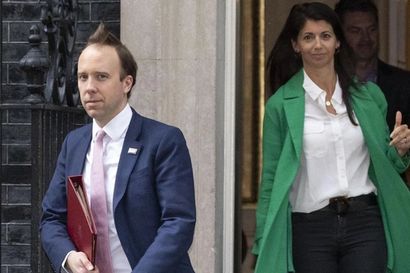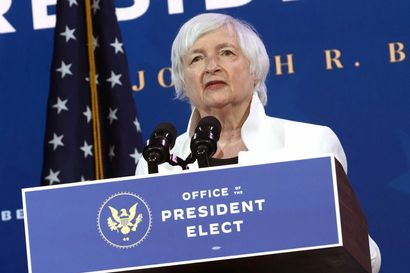Is the Labour party dead?
The Labour Party has much to be proud of – but where does its future lie?
The Labour Party has much to be proud of. From the NHS to the Minimum Wage, it has defended the oppressed, addressed inequality and fought for worker’s rights since its formation in 1900. The Party of Ramsay and Bevan, Wilson and Blair is as part of our national identity as the Queen and constantly saying sorry.
Yet the Labour Party is currently struggling, limping from issue to issue and primarily opposing only itself. For Conservatives, this may seem a blessing – Theresa May is not likely to lose elections – but the secret to good government is good opposition. The Labour Party needs to scrutinise the Government properly. We all need a strong Labour Party, but right now they are failing themselves and, by extension, the country.
So here, we present the four primary reasons why the Labour Party might be dead. Do you agree? And how can they be restored to glory?
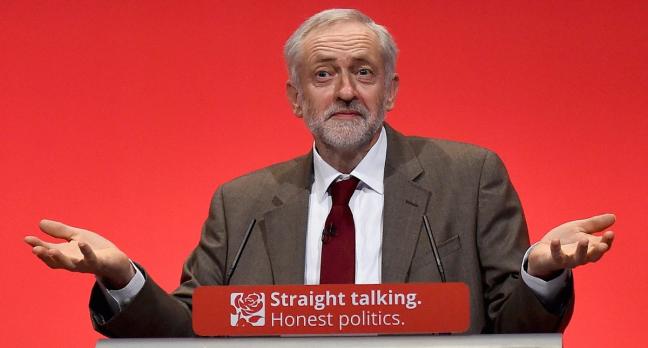
Unsurprisingly, the most obvious problem with the current Labour Party lies with its leader – Jeremy Corbyn. Unfortunately for poor Jez, the public perceive him as fundamentally unelectable. Polls this year consistently suggest that Theresa May is seen as a ‘better leader’ in every age group, social class and region. Indeed, she is just beginning to break polling records for being so far ahead of her opposite number.
As a party plagued by questions over Europe, surely Labour should find ample ammunition to attack the Conservatives? Not so. The Tories have unified, chuntering out ‘Brexit means Brexit’ at every opportunity without real opposition, whilst Corbyn is faced with resignations and abstentions. There is no attack, no proper scrutiny. Instead he seems frightened – almost incapable – of using Brexit, May’s relationship with Trump, or any other issue to hold the Government to account and improve Labour’s standing.
If the 2015 election and the referendum taught us anything, it was to not trust polling
If the 2015 election and the referendum taught us anything, it was to not trust polling. But, when the evidence is so consistent, there is clearly a problem for Corbyn. It’s not difficult to understand why. Just ask yourself, can you imagine him on the steps of Downing Street dealing with President Xi Jinping of China, or making great speeches at the G8? Really?
Corbyn is a figurehead of a deeper problem; the disconnect between Labour’s massive membership and its Parliamentary party. Corbyn’s leadership resulted in a swelling of Labour’s membership to 515,000, dwarfing that of any other party:
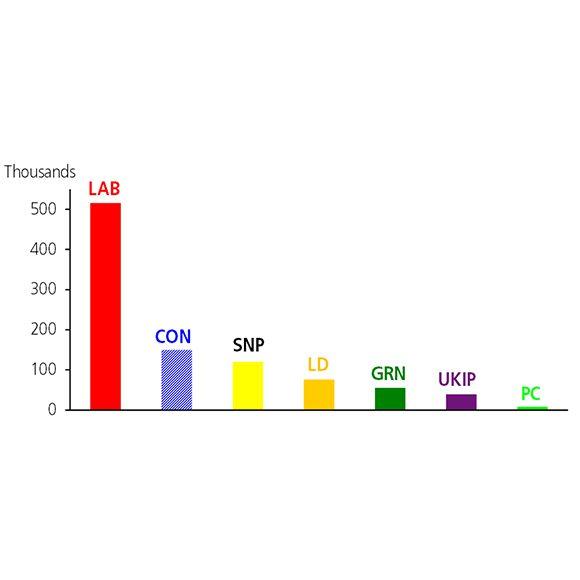
(Source: House of Commons Library)
Many of these new members are also part of a group called Momentum, which seeks to ensure Corbyn remains leader to pursue left wing policies. Unfortunately, however, Corbyn does not have the support of his own MPs. Last year a staggering 172 Labour MPs stated they had no confidence in Corbyn’s leadership, with only 40 backing him. If his own MPs don’t support him, what hope does the British public have?
This vast pro-Corbyn membership renders any attempt to be rid of the leader almost impossible, as the members choose the leader
This vast pro-Corbyn membership renders any attempt to be rid of the leader almost impossible, as the members choose the leader. This frustrates Labour MPs, who are additionally being threatened with deselection by the parties left-wing members. The possibility of losing their jobs puts MPs in a difficult position: Do they unify behind an unelectable leader to keep their place in the House of Commons, knowing they’ll never be in Government – or do they stand up for their beliefs and attempt to bring in a new leader, but at the risk of losing their seats?
Either way, these threats are not fostering an atmosphere of unity. Most Labour MPs are good people; they want to be in Government to do what they believe is right. Currently they can’t – the membership is sticking with Corbyn; but the public don’t like him.
Corbyn’s odds of making it to Number 10 would be improved if his messaging and communications matched his convictions. Despite hiring Seamus Milne, a somewhat mysterious former Guardian journalist, as his Head of Communications, Corbyn is as gaffe-prone and ridiculed as ever. Whether it’s the row over a ‘ram-packed’ train which had plenty of spare seats, being caught on camera saying the filming of a shadow-cabinet was a ‘bad idea’ or offering apologies to the family of a dead police officer who wasn’t actually dead, Corbyn appears incapable. Truthfully, the British Public don’t follow politics that closely. But amusing little stories are heard, remembered and can be damaging by contributing to an overall impression of incompetence.
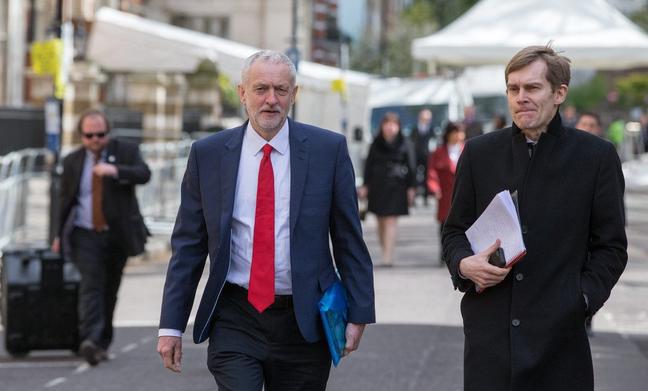
Indeed, messaging surrounding policy is all too often confused. Even this year there has been uncertainty over whether Labour MPs had to vote for Article 50. Separately, the Deputy Leader (Tom Watson) claimed it was ‘unfair’ for a journalist to ask him what Labour’s policy on immigration was. The public don’t understand what the party stands for, which continues to be problematic.
People don’t like the notion of supporting Labour, and this is possibly due to its leader - because their policies aren’t wholly disliked
However, this need not be the case. Polling suggests that Labour’s policies are popular with the British Public, but only when they are not linked to Labour. This disconnect is the most compelling evidence that messaging is a serious problem for the Labour Party. People don’t like the notion of supporting Labour, and this is possibly due to its leader – because their policies aren’t wholly disliked.
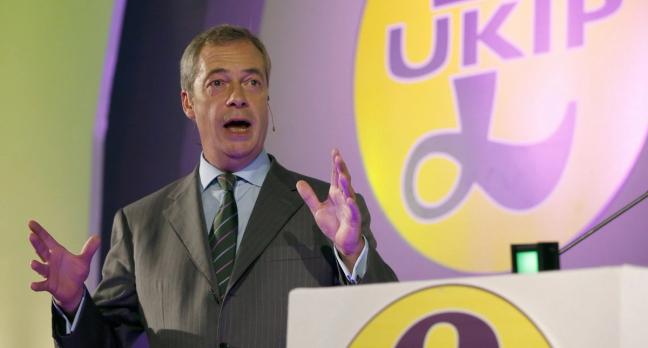
The rise and rise of UKIP is causing as many problems for Labour as it has for the Conservatives. The new leader, Paul Nuttall, is seeking to build on the 3.8 million votes the party received in 2015 by focussing on Labour heartlands. Nuttall believes that Labour’s perceived lack of patriotism provides an opening for the party, and polling suggests he is right. There are even reports that Jeremy Corbyn has given up on the two upcoming by-elections, both of which were previously held by Labour, because his presence is ‘not a plus on the doorstep’. Meanwhile, UKIP’s leader is fighting hard to become his party’s second Member of Parliament, all at Labour’s cost.
As Trump showed us, the underdog can win
There is, perhaps, some hope for the Labour Party. As has been mentioned, the British Public have short political memories. As Trump showed us, the underdog can win. There are comparisons between Corbyn and Trump – both started as perceived outsiders, both were seen as principled and hard line in their views and both have a strong base of motivated supporters. Corbyn has been trying to emulate Trump’s success – albeit unsuccessfully to date – but the road to power is not totally shut just yet. If he sorts his messaging, motivates his supporters and brings the narrative towards the centre in easily digestible policy announcements, then perhaps he’ll make it to Prime Minister. It’s highly unlikely, but stranger things have happened…

Become a Gentleman’s Journal Member?
Like the Gentleman’s Journal? Why not join the Clubhouse, a special kind of private club where members receive offers and experiences from hand-picked, premium brands. You will also receive invites to exclusive events, the quarterly print magazine delivered directly to your door and your own membership card.

